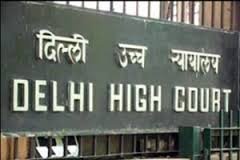New Delhi, Jan 2: The patent war involving domestic and multi-national pharma majors, tussle between the Centre and a private radio channel over FM auctions kept the Delhi High Court busy in 2015 during which it also rapped the Centre for its coal auction ordinance by saying that the legislation “lacked clarity”.
The hastily-formulated coal ordinance by the Centre to auction over 200 mines that were deallocated by the Supreme Court in 2014 was criticized on several occasions by the high court which once observed that though the “ordinance was completely in sync with your (govt) economic policy, but your executive decisions are not”.
Initially former Congress MP Naveen Jindal’s company JSPL had moved the high court challenging Coal Ministry’s ordinance on “change of end-use”, but later several other iron, steel and power companies, including Bhushan Steel, Jayaswal Neco, Monnet Ispat and GVK power, also joined the issue.
Apart from the coal-based industries, another corporate sector which consumed high court time was the pharma sectors with major drug companies battling over who can be permitted to make medicines for diseases like diabetes and cancer which afflict a large percentage of Indians.
However, these pharma matters hardly proved fruitful for Indian generic drug makers like Cipla and Glenmark, who were stopped by the high court from making cheaper variants of respiratory, diabetes or cancer drugs and antibiotics in which patent was held by some other pharma major like US-based Merck Sharp and Dohme (MSD) or Swiss firms Novartis and Roche.
In contrast, drug majors like Reckitt Benckiser and J K Ansell were more successful in their fight against Centre’s decision to cap condom prices as the high court held that the government’s decision putting a ceiling on the cost of the contraceptive was “illegal and unsustainable”.
Besides them, Digital Radio Broadcasting Ltd, which runs Red FM, also took much time of the high court which even on its off-days, Saturday and Sunday, heard the company’s plea challenging the Centre’s decision denying it security clearance to participate in FM auctions due to the radio channel’s association with Kalanithi Maran-promoted Sun TV.
The government had denied security clearance to Digital Radio as Kalanithi Maran and former Telecom Minister Dayanidhi Maran were being prosecuted in cases of alleged money laundering.
The high court, however, termed as “incongruent” the denial of security clearance to Red FM, when Sun TV group had been allowed by Madras High Court to take part in auctions.
This was not the only jolt for the government, which was also pulled up by the high court for not placing before it the contracts the Centre had with social media sites like Facebook and Google, to use them, despite several orders. Thereafter, the Centre submitted the agreements it has with them.
Towards the fag end of the year, several telecom majors like Vodafone and Reliance and two associations representing them knocked at the doors of High Court against the Telecom Regulatory Authority of India’s (TRAI) consumer friendly legislation mandating the cellular companies to pay for call drops from January 1, 2016.
As the telecom companies pressed for stay of the provision and with searching questions coming from the high court, TRAI relented and said it would not take any coercive steps against the cellular operators for non-compliance of the regulation.
Even the airline sector was dragged to the high court by a lawyer over Ministry of Civil Aviation’s policy permitting airlines to overbook flights.
The policy allowed airlines to deny boarding to certain passengers if overbooking of seats has been made in comparison to the number of available seats in the flight.
The high court agreed to examine the issue and sought the stands of the Ministry of Civil Aviation, Director General of Civil Aviation and Air India.
In his plea, the lawyer, contended that the policy allows overbooking of scheduled flights to reduce the possibility of flights departing with unoccupied or empty seats but makes an “unreasonable classification” between confirmed ticket holders on who are permitted to board the flight and who are not.




























